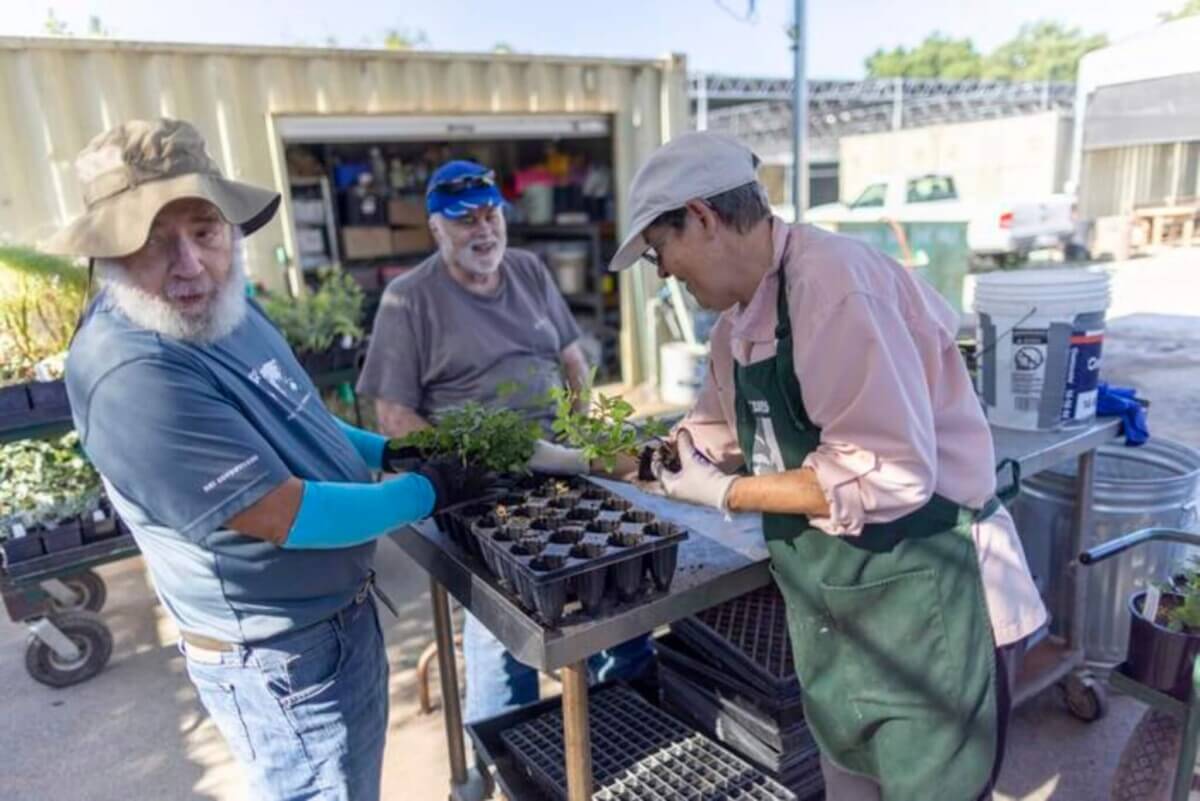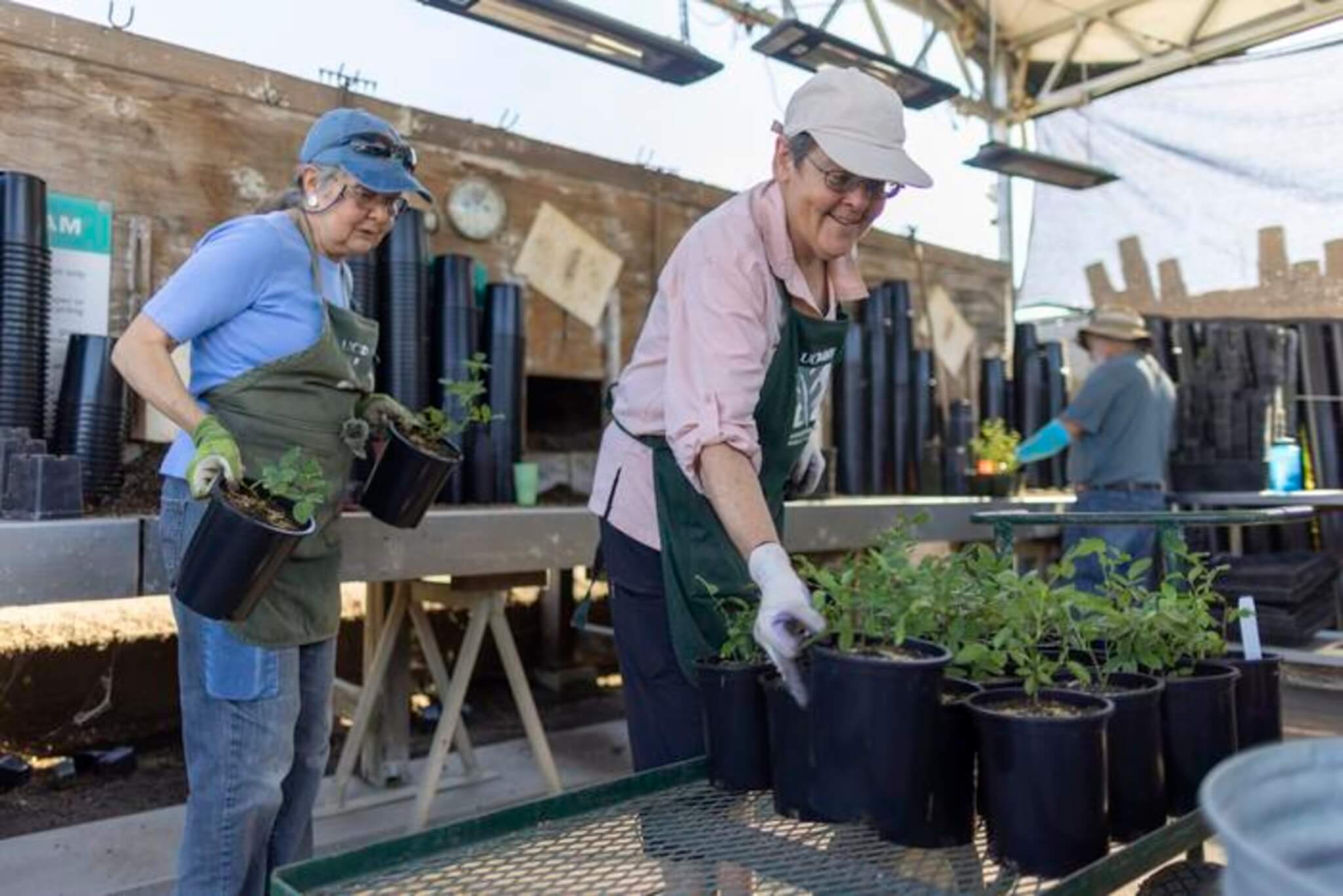
Senior volunteers stay active at the UC Davis Arboretum Nursery in Davis, Calif., July 18, 2023. (CREDIT: UC Davis Health)
SACRAMENTO, Calif. — Volunteering not only helps others, but it may also protect your brain from cognitive decline and dementia. A recent study by a team at the University of California Davis Health reveals that volunteering later in life is associated with improved cognitive functions, notably in executive function and episodic memory.
Volunteering activities, like supporting educational, religious, or health-related causes, offer older individuals opportunities for physical activity, enhanced social interaction, and cognitive stimulation. Despite these apparent benefits, there has been limited data on the link between volunteering and cognitive health, especially among diverse groups.
“We hope these new data encourage individuals of all ages and backgrounds to engage in local volunteering — not only to benefit their communities, but potentially their own cognitive and brain health,” says Donna McCullough, Alzheimer’s Association chief mission and field operations officer, in a media release.
Researchers investigated the volunteering habits of a diverse group of 2,476 older adults, drawn from the Kaiser Healthy Aging and Diverse Life Experiences Study (KHANDLE) and the Study of Healthy Aging in African Americans (STAR). With an average age of 74, the participants were 48 percent Black, 20 percent White, 17 percent Asian, and 14 percent Latino. Notably, 43 percent (or 1,167 individuals) stated they had volunteered in the past year.
The study's results showed that those who volunteered had better scores on tests measuring executive function and verbal episodic memory. These findings held true even after accounting for variables such as age, sex, education, and income. The data showed that those who volunteered several times a week exhibited the highest levels of executive function.

“Volunteering may be important for better cognition in late life and could serve as a simple intervention in all older adults to protect against risk for Alzheimer’s disease and associated dementias,” says Yi Lor, epidemiology doctoral student at UC Davis. “Our next steps are to examine whether volunteering is protective against cognitive impairment, and how physical and mental health may impact this relationship.”
While there was a noted trend towards reduced cognitive decline among volunteers over a period of 1.2 years, the findings were not statistically significant.
“You’re not in control of your family history or age — you can’t turn back the clock. But you are in control of how you spend your day and life,” says Rachel Whitmer, the study's principal investigator. “Volunteering is about keeping your brain active. It’s also about socializing, which keeps you engaged and happy, and potentially lowers stress.”
The study authors presented their findings at the Alzheimer’s Association International Conference 2023 in Amsterdam.











I believe been active help the brain to function more better. siting at home bored watching TV every day can slow down the connective tissue’s l work with many seniors and l notice those who stay active are more responsive happier and have healthy life